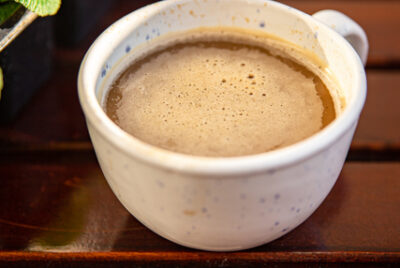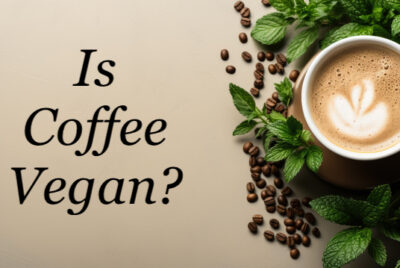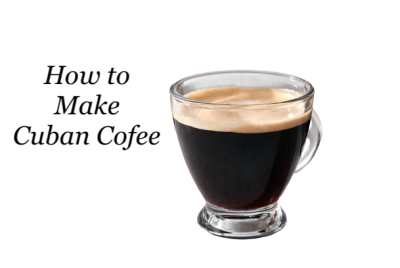How Much Caffeine is in Decaf Coffee? Let’s Find Out
Hey there, fellow coffee lovers! If you’re someone who enjoys the taste and ritual of coffee but prefers to limit your caffeine intake, you might have found solace in decaf coffee. But have you ever wondered just how much caffeine is in decaf coffee?
In this article, we’ll delve into the fascinating world of decaf coffee and explore the caffeine content it contains,
What is Decaf Coffee?
Decaf coffee, short for decaffeinated coffee, is a type of coffee that has undergone a process to remove most of its caffeine content. Contrary to popular belief, decaf coffee is not completely caffeine-free, but it does contain significantly less. The goal of decaffeination is to preserve the delicious flavors of coffee while reducing its stimulating effects.
How Much Caffeine Does Decaf Coffee Have?
Decaf coffee does contain a small amount of caffeine, although significantly less than regular coffee. As mentioned earlier, the caffeine content in decaf coffee is generally less than 2.5% by weight, which translates to approximately 2 to 12 milligrams of caffeine per 8-ounce decaf cup. Compare this to the 30-200 milligrams in caffeinated coffee.
While this amount is relatively low compared to the caffeine content of regular coffee, it can still have mild stimulating effects on some individuals, especially those who are highly sensitive to caffeine.
Decaffeination Process
The decaffeination process is a carefully executed method that involves removing caffeine from coffee beans while preserving their flavor compounds. There are various methods used in the industry, including the Swiss Water Process, solvent-based processes like the direct solvent method, and the carbon dioxide (CO2) method. Each method has its own advantages and is employed by different coffee producers.
Understanding Caffeine Content in Decaf Coffee
When it comes to the caffeine content in decaf coffee, it’s essential to understand that there is no one-size-fits-all answer. The amount of caffeine in decaf coffee can vary depending on several factors.
Factors Affecting Caffeine Content
The caffeine content in decaf coffee is influenced by factors such as the type of coffee beans used, the decaffeination process employed, the roast level, and the brewing method. For example, decaf coffee made from Arabica beans tends to have lower caffeine levels than decaf coffee made from Robusta beans.
Standardized Guidelines
In the United States, the Food and Drug Administration (FDA) has set guidelines for labeling decaf coffee. According to these guidelines, decaf coffee must contain less than 2.5% caffeine by weight. This means that a 12-ounce cup of decaf coffee should have no more than 6 milligrams of caffeine.
Variation Among Brands
It’s important to note that different brands of decaf coffee may have varying caffeine levels due to variations in the decaffeination process and bean selection. Some brands may have stricter standards and aim for lower caffeine content, while others may have slightly higher caffeine levels.
Benefits of Decaf Coffee
Decaf coffee offers several potential benefits that make it a popular choice for those looking to reduce their caffeine intake. First and foremost, it allows you to enjoy the rich flavors and aroma of coffee without the stimulating effects of caffeine. It can be a great option for individuals who are sensitive to caffeine or who want to avoid its potential side effects, such as sleep disturbances or jitters. It also has a decreased diuretic effect.
Additionally, decaf coffee still contains antioxidants and other beneficial compounds found in regular coffee, which have been associated with various health benefits. Studies have suggested that these compounds may have protective effects against certain conditions, including liver diseases, type 2 diabetes, and some types of cancer.
Health Considerations
Decaf coffee can be a suitable option for many people, but it’s important to consider individual health factors and consult with a healthcare professional if necessary. While decaf coffee offers the flavors and potential health benefits of coffee without the full caffeine content, some individuals may still experience adverse effects or have specific conditions that require further caution.
For example, individuals with certain medical conditions, such as gastroesophageal reflux disease (GERD) or ulcers, may find that decaf coffee still triggers symptoms due to other compounds present in coffee, such as acids. Additionally, pregnant women are often advised to limit their caffeine intake, including decaf coffee, to ensure the well-being of the developing fetus. Coffee may also not be the best choice when dealing with a sore throat.
Who Should Drink Decaf Coffee?
Decaf coffee can be enjoyed by a wide range of individuals, depending on their preferences and health considerations. It’s an excellent choice for those who want to reduce their caffeine intake or enjoy coffee later in the day without interfering with their sleep. Additionally, individuals who are sensitive to the effects of caffeine or who experience anxiety or other adverse reactions may find decaf to be a suitable alternative.
Making Informed Choices
When it comes to choosing decaf coffee, there are a few key factors to consider to ensure you make an informed decision.
Reading Labels
When purchasing decaf coffee, take the time to read the labels and look for information about the caffeine content. While the FDA guidelines ensure that it will contain minimal caffeine, you may still come across brands that have stricter standards and aim for even lower caffeine levels. By reading the labels, you can have a clearer understanding of the caffeine content and choose a brand that aligns with your preferences.
Trying Different Brands
Since caffeine content can vary among different brands, don’t be afraid to explore and try different options. Some brands may have a bolder flavor profile, while others may offer a smoother taste. By experimenting with various brands, you can discover the decaf coffee that best suits your palate and meets your desired caffeine intake.
Brewing Methods and Caffeine Extraction
The brewing method you choose can also affect the caffeine extraction from decaf coffee. Generally, the longer the contact time between the coffee grounds and the water, the more caffeine will be extracted. Methods such as espresso and French press tend to extract more caffeine compared to drip brewing methods. However, keep in mind that the overall caffeine content in decaf is still relatively low, regardless of the brewing method.
Decaf Coffee vs. Regular Coffee
It’s important to note the difference between decaf coffee and regular coffee. Decaf coffee is not completely caffeine-free, as it still contains a small amount. If you’re looking for a caffeine-free option, herbal teas or other caffeine-free beverages might be more suitable.
Regular coffee, on the other hand, contains varying levels of caffeine depending on factors like the type of coffee beans, the brewing method, and the serving size. For those who enjoy the energizing effects of caffeine or rely on it to kickstart their day, regular coffee is the go-to choice.
Myth Debunked: Decaf Coffee is NOT 100% Caffeine-Free
One common misconception about decaf coffee is that it’s completely caffeine-free. However, as we’ve discussed, it does contain a small amount of caffeine. While the caffeine content is significantly reduced compared to regular coffee, it’s essential to understand that it’s not entirely eliminated. This myth can lead to disappointment or confusion for those seeking a caffeine-free option.
Decaf Coffee Alternatives
If you’re looking for alternatives or want to reduce your caffeine intake further, there are several options worth exploring. Herbal teas, such as chamomile, peppermint, or rooibos, provide a caffeine-free and flavorful alternative.
Additionally, there are caffeine-free coffee substitutes available in the market, made from ingredients like roasted grains, chicory root, or dandelion root. These alternatives can mimic the taste and aroma of coffee without the caffeine content.
Conclusion
In conclusion, decaf coffee offers a lower caffeine alternative for those who enjoy the taste and ritual of a cup of joe but prefer to limit their caffeine intake. While not completely caffeine-free, it contains significantly less caffeine compared to regular coffee. The exact amount of caffeine can vary depending on various factors, such as the type of beans, decaffeination process, and brewing method.
This provides a way to enjoy the flavors and potential health benefits without experiencing the stimulating effects of caffeine. It can also offer positive effects on bowel movements. It can be a suitable option for individuals who are sensitive to caffeine, want to avoid its potential side effects, or simply prefer to enjoy coffee later in the day without interfering with their sleep.
When choosing decaf coffee, it’s essential to read the labels and understand the caffeine content of different brands. Trying out different brands can help you find the type that suits your taste preferences and desired caffeine intake. Additionally, considering brewing methods and experimenting with caffeine-free alternatives like herbal teas or coffee substitutes can provide further options for those seeking a completely caffeine-free experience.
Remember, coffee is a personal choice, and finding the right balance that aligns with your preferences and health considerations is key. So go ahead, savor that cup of decaf coffee, and enjoy the delightful flavors without worrying about the jitters!
FAQs
Now, let’s address some common questions related to decaf coffee:
Is decaf coffee 100% caffeine-free? How much does it have?
No, not entirely. It contains a small amount of caffeine that ranges from 2 to 12 milligrams per 8-ounce cup. It’s one of the few coffee’s that has less caffeine than tea.
Can I drink decaf coffee during pregnancy?
It’s advisable for pregnant women to consult with their healthcare provider regarding their caffeine intake.
Does decaf coffee taste different from regular coffee?
Decaf coffee can have a slightly different taste compared to regular coffee due to the decaffeination process. However, many brands strive to maintain the rich flavors and aroma of coffee in their decaf offerings.
Can I drink decaf coffee in the evening without affecting my sleep?
This can be a suitable option for enjoying the taste of coffee without the stimulating effects of caffeine. However, individual sensitivity to caffeine can vary, so it’s best to listen to your body and determine what works for you.
Does coffee ice cream have caffeine?
While it has less than normal coffee, coffee ice cream has caffeine. Stick to decaf if it’s available and you want to limit your caffeine consumption.




